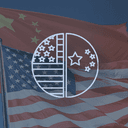In this first edition of China Considered Quick Takes, Elizabeth Economy examines President Trump’s September 19 call with Xi Jinping and two upcoming meetings between the two leaders in the next few months. She looks back at how past presidential meetings—Nixon with Mao, Carter with Deng, and Obama with Xi—have shaped the Sino-American relationship, and considers what today’s agenda of trade, fentanyl, and TikTok might deliver. Economy argues that while these talks could help stabilize tensions, the real test is whether the administration can finally articulate a clear and coherent China strategy to guide US policy.
Watch full episodes of China Considered with Elizabeth Economy here.
Transcript
Elizabeth Economy: Welcome to the first edition of China Considered Quick Takes. I’m Liz Economy, Hargrove Senior Fellow and Co-director of the program on the US, China, and the World at the Hoover Institution, where I also host the podcast China Considered. In these quick takes, I’ll offer insights and analysis into some of the most important events and issues in US-China relations.
Today I’m going to talk about President Trump’s September 19th call with Chinese President Xi Jinping. After the call, President Trump announced that he was planning to meet with Xi Jinping twice: first on the sidelines of the OPEC meeting in Seoul, South Korea, at the end of October or beginning of November, and then later, he plans to travel to China sometime early in the new year.
These presidential meetings or summits can have very positive impacts on the overall bilateral relationship. Sometimes they signal real breakthroughs.
For example, when President Nixon met with Mao Zedong in 1972, the two set the countries on the path toward normalization of relations. And then when President Carter met with Deng Xiaoping in 1979, the two leaders celebrated the formal establishment of diplomatic relations.
More recently, presidents tend to focus on a narrower set of issues. For example, President Obama and President Xi signed an agreement on cyber economic espionage in 2015. President Trump, when he met with President Xi during his first term in 2017, came to an agreement on a 100-day action plan on trade.
From what we’ve heard from President Trump so far, it appears that his team is going to focus on a narrower set of interests, trade, fentanyl, and of course, we’ve already seen the outlines of a TikTok deal. That doesn’t mean there can’t be an important breakthrough, it just means that these are the issues that the team is focusing on right now. There’s also the opportunity for these meetings to serve as a forcing mechanism for the administration to clarify its China strategy.
Thus far, we don’t really have a good sense for how this administration is approaching China. Does it consider China to be a strategic partner, a strategic challenge, a strategic threat, all of the above? What are its priorities? What are its objectives? Aside from trade, we don’t really have a good sense; not having a strategy poses several risks to the administration.
First, it can contribute to a lack of policy coherence. For example, in April, the Trump administration put in place a set of export controls on a very particular type of advanced AI chip. In July, the president lifted those controls. Without a strategy, we are left unclear as to how this set of decisions fits into our national security approach to China.
Another risk is that it makes our negotiations with China more challenging. In April, in the midst of the trade war, the Chinese placed an export ban on several rare earth elements. These rare earth elements are essential for our technology and defense industries. The Trump administration was forced to backpedal and offer several concessions. It put us on the defensive because we hadn’t taken the time to develop a strategy to plot out the moves and counter moves that China might take.
Finally, not having a China strategy makes it more difficult for us to align different parts of our policy. So, for example, the administration just declared that it wants to export our tech stack globally. This is great news. It’s good for American workers, it’s good for American business, and it’s great for American influence globally, political, economic, and security. The challenge is earlier this year, the administration cut its support for our domestic clean tech industries. Without that kind of support, it makes our clean tech industries incapable of competing with China’s Digital Silk Road.
So the administration made a couple of really important short-term decisions without fully appreciating the long-term strategic costs. That’s what happens when you don’t have a strategy. So, as we think and get excited about the potential deliverables that may come out of these Trump-Xi meetings, also keep looking for whether or not this administration articulates a clear, comprehensive and coherent strategy that advances America’s interests.
Thanks very much for listening, and don’t forget to hit the subscribe button.
Elizabeth Economy is the Hargrove Senior Fellow at the Hoover Institution. Named by Politico as among “the ten names that matter in China policy,” Economy served as senior adviser for China in the US Department of Commerce in 2021–23 and is the author of several influential books on Chinese politics and policy, most recently The World According to China.
